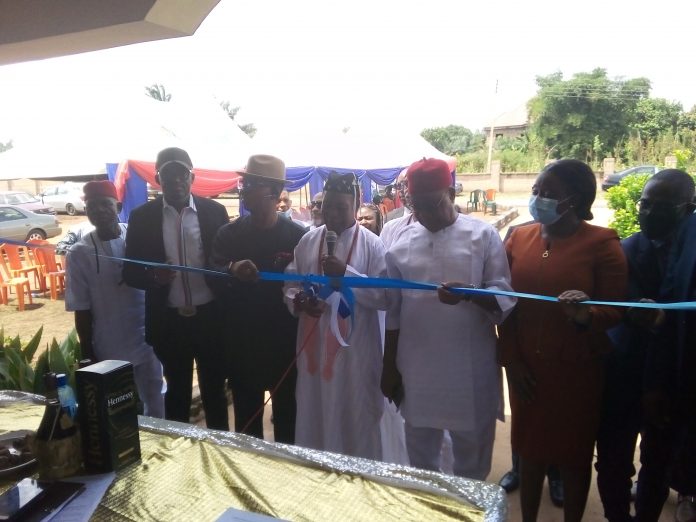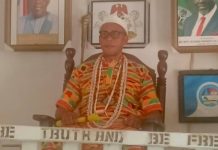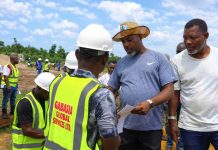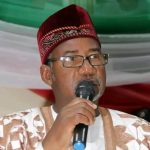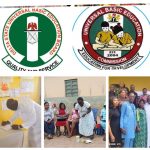Chairman of the Commission, Olorogun Isaac Akpoveta, in his welcome address on Monday 16th November 2020, expressed happiness that Diabetes and Hypertension which are two major sicknesses that kills easily have been shown their way out of the Community.
He disclosed that the Commission was very concerned about the health of those in the rural communities, “We want to ensure that you in the rural areas receive healthcare even better, quality than those of us in the urban areas because you bring the food to us, you take care of us. I think without the rural areas, the urbans, will not be there”.
He noted that the access to finance programme of the Commission, has been able to establish a system in the hard to reach areas, “and we are happy that this is one of the programmes we are bringing to the rural area as a Commission and that with this you should be assured that your health especially in the areas of Diabetes and Hypertension will be taken care of and be protected”.
He appreciated the former Deputy Governor, Chief Benjamin Elue, for putting up the Centre just as he appealed to members of the Community to patronize the centre.
The Director General (DG) and Chief Executive Officer (CEO), of the Commission, Dr. Ben Nkechika, emphasized that the Commission was established to provide health care for all residents of the state and not indigenes alone.
“The health insurance Commission is designed to give free medical health services to those who are sick but do not necessarily have the money to provide healthcare”, stressing that the category under which such people falls in, is called the equity health plan.
He listed them to include the pregnant women, children under the age of five years, the elderly and those that have the inabilities to pay due to financial challenges, “We have a way of identifying and helping them.
Dr. Nkechika, assured the people that the Commission also has the benefit package for people who are not covered under the federal government basic healthcare package, which allows people with NIMC registration number to walk into any center for treatment.
He noted that the Commission has also come up with the idea of people having healthcare services closer to them, “Based on this we have identified healthcare facilities that have been built but not operational, we will find a way to make it operational.
“Anybody in the community is free to walk into this facility and do you blood sugar test, BP check. Once you are found that you are Diabetic or pre Diabetic, you will be put into a programme where you will be supported with all the requirements to continue treatment”.
He disclosed that the partnership with SANOFI, has yielded positive result as SANOFI, has agreed to give the Commission drugs at a discounted price, “and these drugs will be provided for all our enrollees free of charge but all you need to do is get enrolled into the programme”.
He assured the community that doctors would be trained to manage cases, identified it early and ensure that there is no case of Diabetes complications just as he called on the Community to take the opportunity to utilize the facility as identified Diabetic cases would be registered and given free support.
Also speaking, the General Manager, SONOFI, Folake Odediran, revealed that over N30 million has been spent in the purchase of medical equipment for the treatment of patients at the four Diabetes and Hypertension Clinics across the state.
Apart from the one located in Obior, others are in Polobulo, Warri north, Owo – Olomu, Ughelli south and Oporoza, Warri south west local government areas.
Odediran said about a year ago, Delta State Contributory Health Commission and SANOFI apparently joined force to address the rising burden of diabetes and Hypertension in the state due to the uprise in the disease.
She hinted that SANOFI had trained no fewer than 400 Medical Personnel to screen and treat patients with high quality and affordable medicines
Hear her: “the increasing burden of diabetes and Hypertension is a major public health concern. This is because these disease are not just health problems but also a development challenge as they impact quality of life, undercut productivity and force many people and families into poverty due to catastrophic expenditures on treatment.
“It aims to bring healthcare closer to the people to eliminate some of the barriers which prevent people from accessing healthcare.
“A number of factors in our healthcare system limit the ability of many people to easily access diabetes and Hypertension care which are low level of public awareness of the disease, inability to access a healthy worker or facility, and inability to afford the cost of treatment”.
Earlier, the former Deputy Governor, Sir. Benjamin Elue, had assured that the Community would take ownership of the facility, pledging not to let the government down for its love for the Community.
A one week screening for Diabetes and Hypertension commenced immediately, which would continue according to Director General of the Commission for early detection and treatment.
The facility is presently the Diabetes and Hypertension Clinic serving Delta north Senatorial district.

